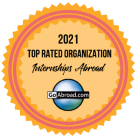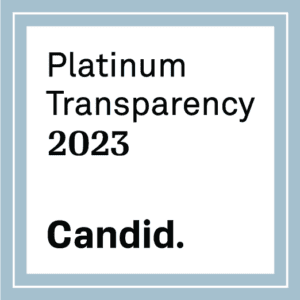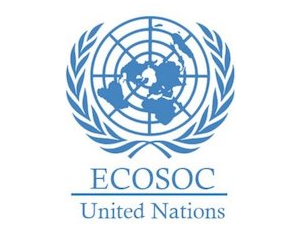When Community Empowerment Meets Study Abroad
CFHI at NAFSA Conference 2012 – Houston, Texas
Child Family Health International (CFHI) along with the greater study abroad community gathered the last week in May in Houston at the annual NAFSA: Association of International Educators conference. Along a session featuring CFHI’s own global health programming, Engaging Nontraditional Students in International Internships, another session in particular resonated with CFHI’s mission and  approach. Paul Arntson led off a session entitled “Designing Transformative International Education Programs: What’s Working.”
approach. Paul Arntson led off a session entitled “Designing Transformative International Education Programs: What’s Working.”
Arntson is a community organizer, faculty member and co-founder of the Center for Civic Engagement at Northwestern. Alongside colleagues from the Foundation for Social Development, Paul eloquently described the role of asset-based community development and engagement models as applied to study abroad and international internship programs.
Paul touched on paradoxes central to community development and global health education alike. Highlighting several here:
- How do we run global health and other micro-development projects when the macro-development and global inequity issues seem so overwhelming?
- How do we release our students from being ‘prisoners of perfection’ (and thus focusing on what is wrong)?
- How do we minimize direct service and maximize capacity-building when the expectations in country (and often those of students and sending institutions) are so skewed in the opposite direction?
CFHI’s particular realm is global health education for students pursuing careers in the health professions and related fields. CFHI and other programs sending western students to the developing world, there is a risk that exposure to

overwhelming poverty, disparities, and geopolitical challenges may serve to disillusion rather than inspire students. To counteract this effect it is important to remind students that global engagement is a stepping stone process. CFHI students are prepped in this process and are laying the foundation of understanding complex social and political determinants of health, gaining skills in participant-observation, building qualities of flexibility, language competency, cultural competency and the like ultimately positioning them to be effective partners and change agents in the future.
Approaching Global Health – An Asset-Based Model
The structure of some global health education programs (especially those with service-oriented mentality or health/humanitarian interventions) also risk giving students the impression that western-centric involvement is the solution to local global health challenges. Consequently students can become paternalistic and neocolonial in their approach to global health projects. To avoid this undesirable outcome, programs need to be conscientious of their approach with global communities and how to frame student’s roles and responsibilities.
Asset-based engagement, modeled after the Asset-Based Community Development Model provides an important framework for global health engagement that truly places the assets and vision of the community at the forefront of the global health development process (rather than just paying lip service to the community’s agenda). By having students participate in an asset-based model we are freeing them from being the ‘prisoners of perfection’ as Paul Arntson highlighted, and positioning students to examine a community’s strengths rather than weaknesses.
Maximizing Capacity Building
The question of how to minimize direct service and maximize capacity building is a challenging one. Many colleagues in global health ‘get’ this distinction, but unfortunately as a community we still gravitate toward short-term outputs and pre-empted project designs. Each year I advise students on crafting global health proposals. Yet never once has project application required the student to outline what they WILL NOT be doing when they go abroad. Universally, applications, grants, and proposals ask students and faculty to describe project methods and desired outcomes, often before they’ve ever set foot in the community. As global health matures, I look forward to proposals which require Westerners to describe how they will hold back when they arrive in a new community–how they will listen, learn, and take stock of the strengths that lurk around every tattered corner. Ultimately – how will students enable populations to build on their own strengths to create sustainable improvements and capable communities?
In the meantime, students and faculty who want to focus on long-term capacity building, community empowerment, and building effective global health leadership can participate in programs with established organizations such as CFHI who are providing ongoing asset-based engagement. Going abroad through CFHI allows a student’s short-term international experience to be a part of a larger network and contribute to long-term projects and relationships built over 20+ years by CFHI. All this while imparting the critical building blocks of becoming a global health advocate, educator, practitioner, or ‘global human’ (in the words of Anvar Velji, MD).
Search here anything
Categories
- Academic Partnerships (4)
- CFHI Model (28)
- Cultural Humility (46)
- Ethics (44)
- Gender Equality (1)
- Global Health (68)
- Global Health Education (89)
- Global Health Elective (33)
- Human Rights (2)
- Local Experts (51)
- Medical Electives (41)
- Promotional Works (1)
- Public Health (17)
- Rotations (29)
- Student Spotlight (8)
- Study Abroad (10)
- Uncategorized (35)
- Volunteering Internationally (50)
Tags
Categories
- Academic Partnerships (4)
- CFHI Model (28)
- Cultural Humility (46)
- Ethics (44)
- Gender Equality (1)
- Global Health (68)
- Global Health Education (89)
- Global Health Elective (33)
- Human Rights (2)
- Local Experts (51)
- Medical Electives (41)
- Promotional Works (1)
- Public Health (17)
- Rotations (29)
- Student Spotlight (8)
- Study Abroad (10)
- Uncategorized (35)
- Volunteering Internationally (50)




